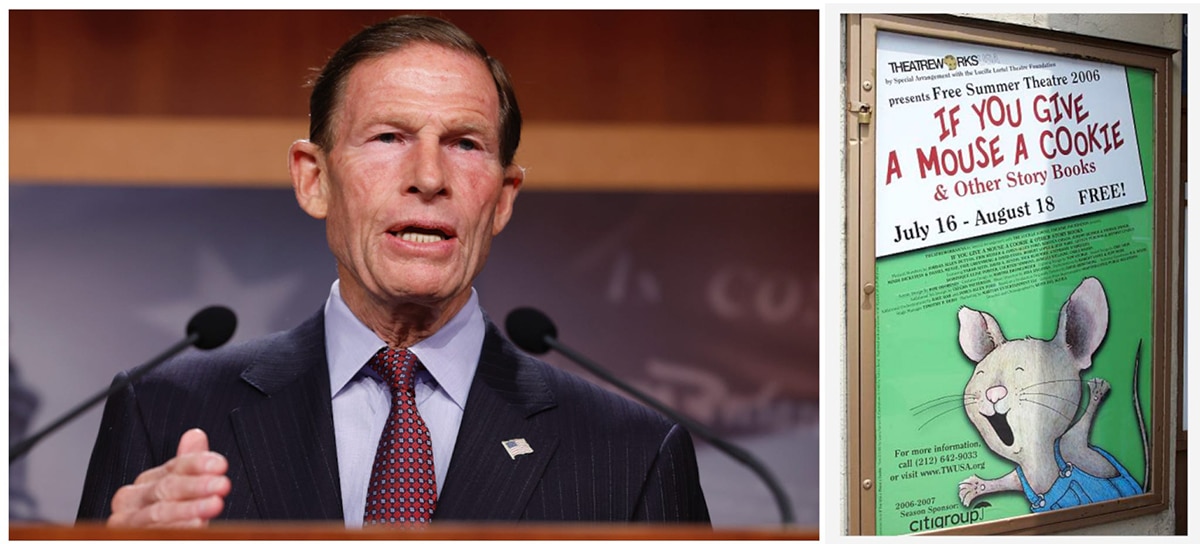

America Needs Truth and Reconciliation on Russiagate
by | Jan 12, 2022
A new thread today in the #TwitterFiles is about a fake news story from early 2018:
1.THREAD: Twitter Files #14
THE RUSSIAGATE LIES
One: The Fake Tale of Russian Bots and the #ReleaseTheMemo Hashtag— Matt Taibbi (@mtaibbi) January 12, 2023
Remember this one? Russian bots and trolls were blamed by virtually every major news organization in the country for amplifying the hashtag #ReleaseTheMemo. The files contain a mass of emails from executives blowing up this ridiculous story, once and for all.
The #ReleaseTheMemo scandal was one of the more shameful episodes in the recent history of our media, but taken seriously by all but one or two mainstream editors at the time. All citing the same dubious source — the Hamilton 68 “dashboard” trumpeted by former FBI counterintelligence official and current MSNBC contributor Clint Watts — they insisted Russians deployed Twitter bot-armies to whip up cyber-support for Republican congressmann Devin Nunes. Nunes had just released a classified memo alleging Democrats and the FBI used the infamous paid oppositional research dossier of ex-spy Christopher Steele to obtain secret FISA surveillance authority on Trump-connected figures like Carter Page, amid other improprieties.
We now know Twitter internally found no evidence, as in zero, that Russians were anywhere near this story.
“I just reviewed the accounts that posted the first 50 tweets with #releasethememo,” wrote a piqued Trust and Safety chief Yoel Roth, in all other respects as loyal a Democratic partisan as can be imagined. “None of them show any signs of affiliation to Russia.”
“These hashtags are organic,” said a second.
“Not seeing it,” said a third.
This is a constant theme in the files. In addition to revelations about FBI censorship, shadow-banning, Pentagon use of fake accounts, and suppression of true information about issues like Covid-19, the Twitter emails regularly expose the wide delta between what we were told about foreign threats, and what a major platform seeing the raw data knew. Even within the heavily partisan culture at Twitter, the regular “Russia, Russia, Russia” claims by politicians and media in self-serving pursuit of headlines caused eyes to roll.
“Members,” said one Twitter executive, “look foolish if they cry ‘Russia’ every time something happens on social media.”
We have a lot of problems in this country, and there are serious arguments to be had between blue and red about all sorts of issues, from immigration to the wealth gap to abortion and race. But the country is currently paralyzed by distrust of media that runs so deep that it prevents real dialogue, and that situation can’t be resolved until the corporate press swallows its pride and admits the clock has finally run out on its seven years of loony Russia conspiracies.
It’s over, you nitwits. It’s time to stow the Mueller votive candles, cop to the coverage pileup created by years of errors, and start the reconciliation process.
You’ll be tempted to shout, “But Trump, Stop the Steal, QAnon — Derp!” Don’t do it. Don’t be the Japanese soldier still clutching a bayonet to defend the forgotten atoll in 1960. Forget Trump: you need to clean your own house first. Expunging the years of absurd deceptions has to happen, if media companies ever want wide audiences to trust them again, and that starts with admitting the obvious screwups — like this case.
The #ReleaseTheMemo tale took place at the peak of McCarthyite mania about omnipresent Russian saboteurs infecting domestic discourse. They were blamed not just for whipping up support for Nunes, but for hashtags like #SchumerShutdown, #ParklandShooting, even #GunControlNow. They did all this to “widen the divide” between Americans, according to a not-at-all-kidding New York Times, whose sources then included the disgraced think tank New Knowledge (later outed in the New York Times itself for creating a fake Russian influence campaign, in an Alabama Senate race) and the aforementioned Hamilton 68, which “worked with” New Knowledge.

In the case of both #SchumerShutdown and especially #ReleaseTheMemo, it’s undeniable thanks to #TwitterFiles emails that Twitter’s executives were aghast at the “Russian bots” story, and struggled to convince both media and members of Congress not to repeat assertions of Russian influence in public.
Yet three influential Democrats, including Senators Dianne Feinstein and Richard Blumenthal and the House’s tireless, still-yapping Russiagate mascot, Adam Schiff, were determined to go there. Twitter execs scrambled anyway to try to stop each. After a lot of pleading, one staffer for “DiFI” — Feinstein — finally agreed it would be “helpful to know” how their main source Hamilton 68, created under the auspices of the German Marshall Fund and the Alliance for Securing Democracy (ASD), came to “decide an account is a Russian influencer.”
It apparently didn’t occur to the DiFi staffer, or to Senator Feinstein herself, to ask this crucial question of how Watts and Hamilton 68 were identifying Russians before the Senator published an open letter with Schiff citing it as proof of Russian perfidy. Absolutely blind, in other words, they declared #ReleaseTheMemo to be Russian propaganda, saying it benefited from the “assistance of social media accounts linked to Russian influence operations.”
Hamilton 68’s front page still features a drawing of Vladimir Putin tossing bouquets of evil red Twitter birds into the atmosphere. Its lead paragraph also still features a quote from former Director of National Intelligence (now CNN contributor ) James Clapper, most famous for lying to Congress about the NSA surveillance program subsequently exposed by Ed Snowden. On the Hamilton 68 page, which purports to provide a “real-time look at Russian propaganda,” Clapper warned that having interfered in 2016, Russians were now beginning to “prep the battlefield” for 2018.
Twitter Global Communications chief Emily Horne described Hamilton’s analytical method as one might an icky thing held by tweezers at arm’s length. “Hamilton 68 does not release the accounts that make up their dashboard,” she wrote, “so no one can verify the accounts they include are in fact Russian automated accounts.”
That this preposterous parody of a web analytic tool was taken seriously by reporters for years is embarrassing enough. That U.S. Senators relied upon it as a sole source in the #ReleaseTheMemo episode shows how desperate they were to change the subject, to deflect from a Nunes memo later proved correct by an Inspector General’s report.

Blumenthal in some ways was more craven than Feinstein or even Schiff. His people approached Twitter after Feinstein published her letter, because Blumenthal “wanted to send a followup letter.” Twitter executives foolishly believed this meant there was a window to talk the Senator out of doing so.
One suggested “it might be worth nudging Blumenthal’s staffer” to the effect that “it could be in his boss’ best interest not to go out there, because it could come back to make him look silly.” Another tried to “wave him off” because “we don’t think these are bots.” In one instance a Twitter comms official proposed bargaining with Blumenthal, essentially asking him to hold his fire on #ReleaseTheMemo in exchange for an unnamed future concession. “It seems like there are other wins we can offer him,” she wrote.
Blumenthal and his staffers instead blew them all off, and went ahead to publish their own own open letter later, warning that “nefarious” Russians out to “discredit” the probe of Special Counsel Robert Mueller were certainly using the deplorable #ReleaseTheMemo hashtag.
“We find it reprehensible that Russian agents have so eagerly manipulated Russian citizens,” Blumenthal wrote.
Seeing this, Twitter execs realized “Blumenthal isn’t looking for real and nuanced solutions,” but rather “just wants to get credit for pushing us further.” They eventually compared their relationship to Congress to the children’s book If you Give a Mouse a Cookie, i.e. if you even answer a question about whether or not an account is a Russian bot, you get rewarded — even if you answer the question in the negative — with “round after round of requests.”
Let’s assume for the sake of argument that if Twitter wasn’t actually seeing Russian bots driving #ReleaseTheMemo, that the countless news stories that argued as much citing a single flawed source, Hamilton 68, were wrong.
That’s a lot of news stories, starting with entries by NBC, ABC, Associated Press, PBS, Washington Post, New York Times, Slate, Voice of America, RFE/RL, CBC, Salon, MSNBC, Bloomberg, Rolling Stone, and countless others, and that’s not counting broadcast, radio, podcasts, etc.
In this case, we’re adding a whole new peak of wrong stories to another range of known wrong stories: the multitudinous articles that came out around the same time declaring, with absolute certainty, that the Nunes memo about FISA abuse and the misuse of the Steele dossier (among other things) was not just wrong, but possible grounds to have Nunes removed from office.
These included pieces like “Nunes Memo is Slide Toward Abuse of Power,” “Highly Debated Nunes Memo on Alleged FISA Abuses Furthers Conspiracy Theories,” “The Nunes Memo Proves One Thing, and It’s the Opposite of What It Wants to Prove,” “Nunes Memo Reveals Congressman’s Penchant for Conspiracy Theories,” “Nail in the Coffin for the Nunes Memo,” etc., etc., etc.
A typical editorial take on the Nunes memo back then sounded like Eugene Robinson’s, at the Washington Post:
It’s simply not possible, on any level, to take seriously the histrionics from Trump and his true-believer allies over the Nunes memo — except as evidence of how far the GOP has plunged into cynicism and madness.
Again, the “madness” of the Nunes memo was verified as true just under two years later, with the release of Justice Department Inspector General Michael Horowitz’s report. Without getting into the weeds of those stories, Horowitz, no Republican partisan, found the same things Nunes did: that the Steele dossier played a “central and essential role” in the FBI’s effort to secure FISA surveillance authority of Trump-linked figures, that those warrant applications were riddled with errors and lies, and the Steele reporting itself was at best highly suspect.
I reached out for comment to a long list of people associated with pushing the “#ReleaseTheMemo is Russian propaganda” tale, from Schiff to Blumenthal to editors at the Times, Politico, the AP and others. Every last one refused comment. Who did have something to say? Devin Nunes, who was the subject of removal campaigns by the likes of MoveOn and the Action Network just for writing his “Nunes memo,” which again, turned out to be correct.
“Schiff and the Democrats falsely claimed Russians were behind the Release the Memo hashtag, all my investigative work, and Trump’s entire presidency,” he said this week. “By spreading the Russia collusion hoax, they instigated one of the greatest outbreaks of mass delusion in U.S. history.”
You may argue with the politics of Devin Nunes — even I might — but as an investigator in this matter he told the truth, while counterparts like Schiff and Feinstein did not. Virtually all major media outlets share in the profound shame of implying that Nunes was a witting or unwitting agent of Russia just for writing a memo that turned out to be true. Moreover, by exacerbating a public panic in moments like this, both these press outlets and politicians like Schiff, Blumenthal, and Eric Swalwell (who said Nunes sought to “torch every floor” of the FBI) really did feed a “mass delusion,” for which they need to answer.
By the way, if the Steele report is wrong, and it is, that’s another K2-sized peak of Russia stories that has to be tossed out, from tales implying Russia had an ability to blackmail Trump or recruited him to be a spy in the eighties to suggestions — there were a lot of them, in print — that Trump agreed to soft-peddle Russia policy in exchange for Russian favors. Years of Steele-centric CNN and MSNBC broadcasts have to be apologized for. Rachel Maddow went on air in January of 2017 and argued the Steele material must be right, because the FBI would tell us otherwise, and “They’re not saying that. They’re not saying anything.”
Some outlets have chosen to try to sneak through this scandal, and sweep the problem under a rug. Many for a while now have pumped out features designed to convey the impression they never made the mistakes they did. The Washington Post, for example, which won a share of a Pulitzer Prize in 2018 for reporting that included dire warnings about “a troubling pattern of fictitious news stories” pushed out by Russians “across social media,” quietly ran a piece last week about a study by New York University concluding, “Russian trolls on Twitter had little influence on 2016 voters.” They didn’t mention their own history of saying otherwise, and being rewarded for doing so, in the article.
This won’t do. The catastrophe has to be met head-on, and admitted at scale, in order for any of these actors to be redeemed. They won’t listen to me, of course, since I was pegged “right wing” years ago for dissenting on this matter. As the New York Times put it, my “fan base” shifted because I was “skeptical of claims of collusion between Russia and Mr. Trump’s campaign.” Never mind that I was right to be skeptical, and that this is the approach any ethical journalist would have taken: their position is that because such skepticism pleased the wrong people, it’s evidence of shifting political beliefs.
If they want to keep that up in my case, fine. But if they want to regain anything like the broad authority they once had with audiences everywhere, they need to face this thing. It may take a bigger evidentiary shock than even the Twitter Files can provide to these recalcitrant editors, but who’s to say such a thing isn’t coming?






0 Comments